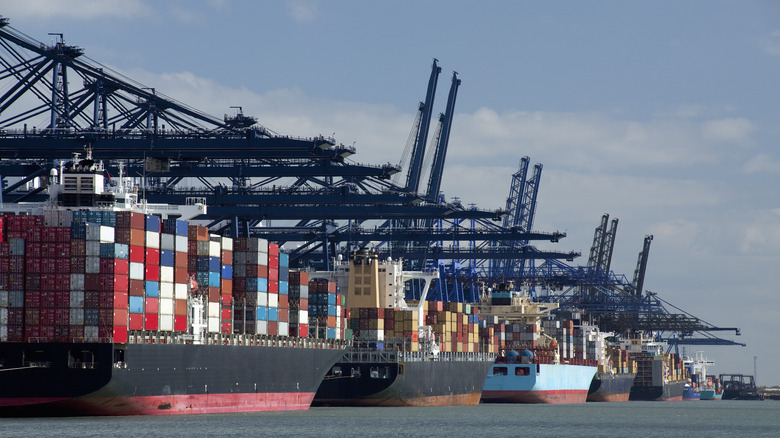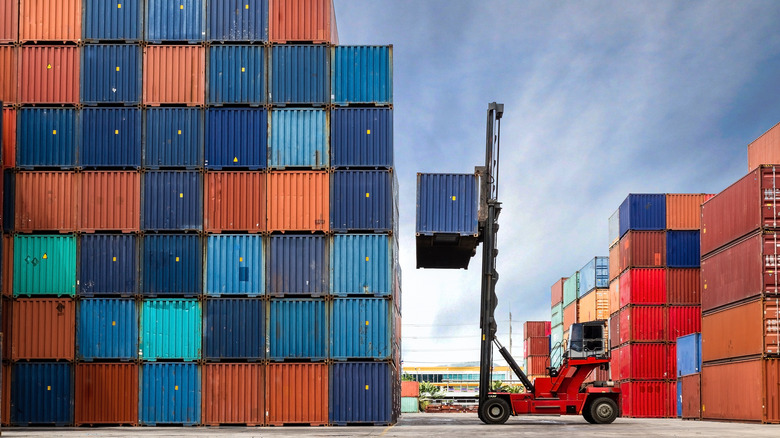Beer, Chocolate, Cherries, And More Groceries That Will Be Harder To Get During The Port Strike
Early last week, we let our readers know about the possibility of a port strike on the East and Gulf coasts. Sure enough, negotiations failed to materialize into a working contract and the International Longshoremen's Association (ILA) made good on its threat by initiating the strike on October 1. Roughly 45,000 dockworkers are now on strike with no substantive signs that the end is in sight.
In our initial coverage, we warned readers that bananas were going to be significantly affected by the strike and that hasn't changed. But with the strike in full swing we're getting a better picture of what other grocery items are affected. The products hardest hit are perishable goods since each day spent waiting to be unloaded is another day for natural bacteria to work its way into our food. Notable items to be aware of include sugar, cocoa, cherries, and imported beer, wine, and hard liquor.
Imported alcohol may seem like odd inclusions on this list since the alcohol content keeps bacterial decay at bay, but you should be paying attention to your beer's expiration date. Although the likelihood of mold growth in the presence of alcohol is diminished, you will see a decline in quality in terms of flavor for both wine and beer. There are refrigerated cargo containers that companies can use to transport perishable goods, but it's unclear what percentage of food items are protected in this way and how long the refrigeration can last.
What's being done about the port strike?
Before the strike ever started, President Biden made clear publicly that he had no intention of invoking the Taft-Hartley Act to end the strike. To put it briefly, Taft-Hartley would allow the president to declare the cost of a strike too great to allow it to continue. The purpose of its existence is for the government to step in and say, essentially, now is not a good time.
When Biden announced this stance last week, before the strike started, it was a clear indication of his vocal support for unions and their right to bargain for better working conditions and fair wage increases. But now, with the devastating effects of Hurricane Helene wrecking huge swaths of the South, there does seem to be a little more substance behind the argument for invoking Taft-Hartley. As communities struggle with rebuilding their homes and businesses, the port strike is keeping essential food and other goods from reaching them.
Natural disasters aside, we are one month away from Election Day, and an overwhelming concern for voters regardless of affiliation is the economy. Even though the Federal Reserve has signaled that it has inflation under control, prices remain higher than before and people are still suffering from food inflation. This port strike will inevitably raise prices on affected grocery items. The Biden administration's embrace of a hands-off, it-will-work-itself-out approach to the issue so close to Election Day is a notable gamble. Yet both Donald Trump and Kamala Harris have expressed support for the union's right to collective bargaining.

